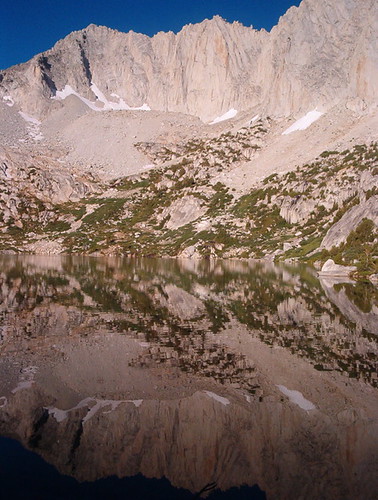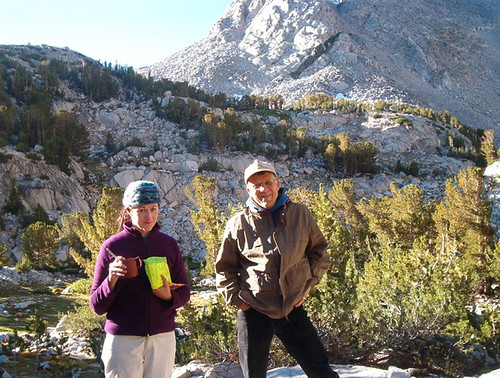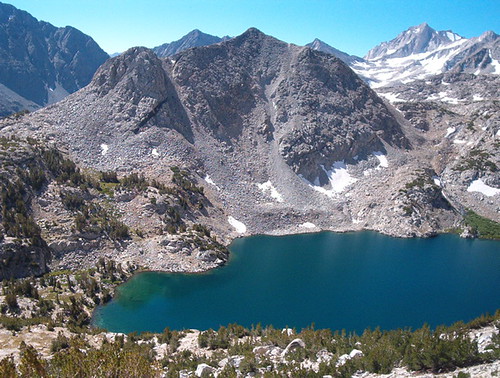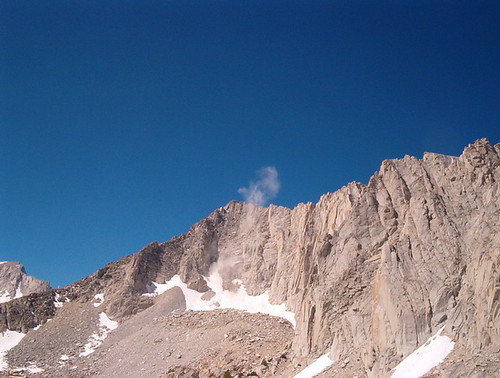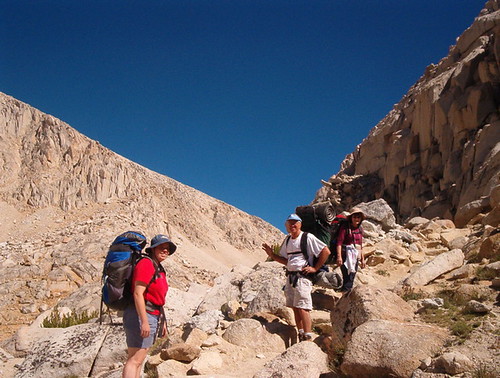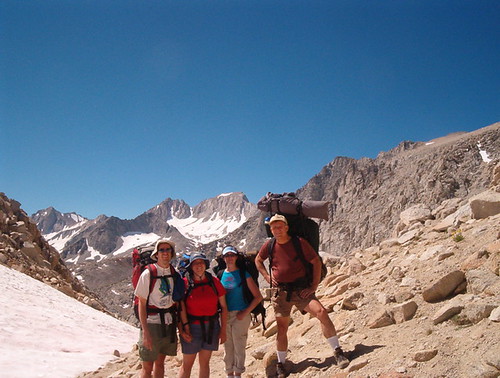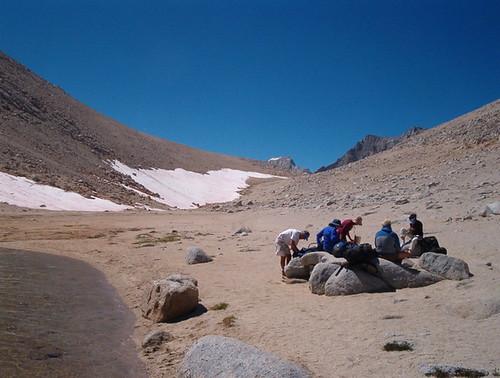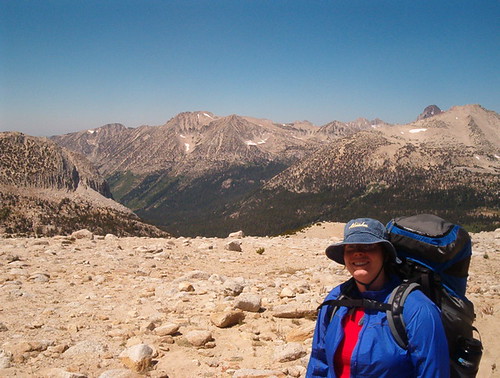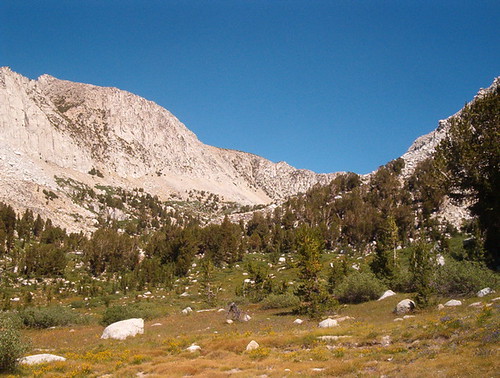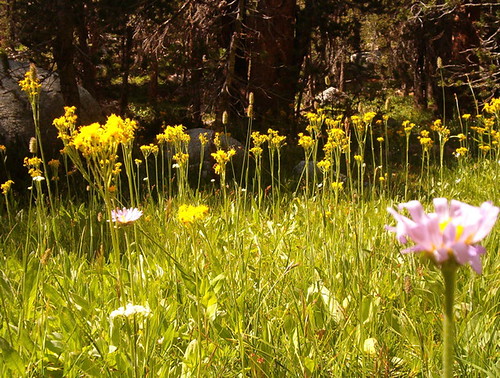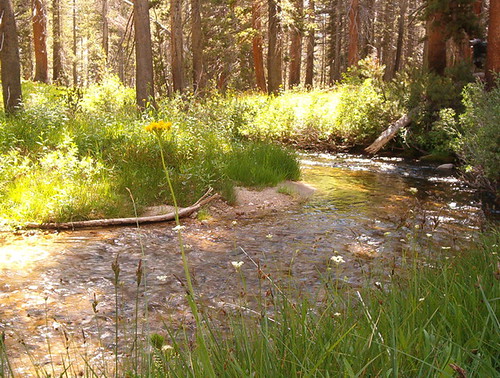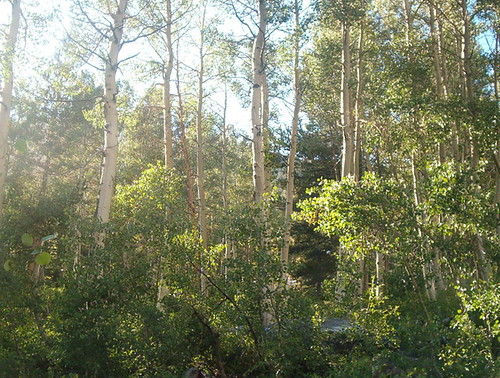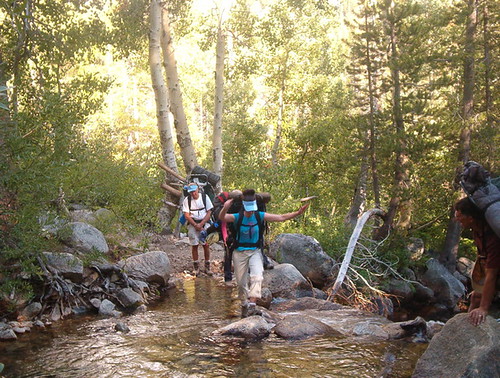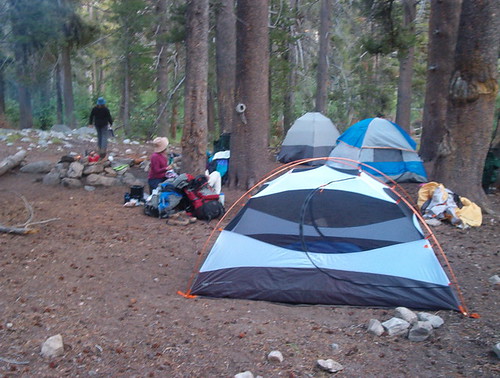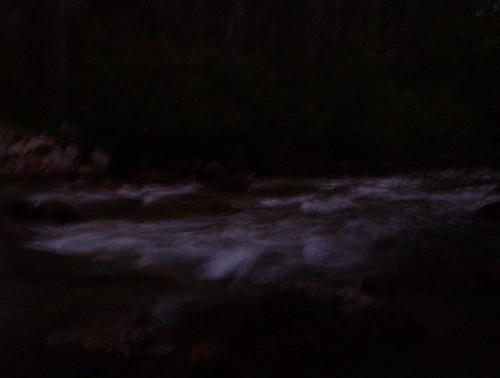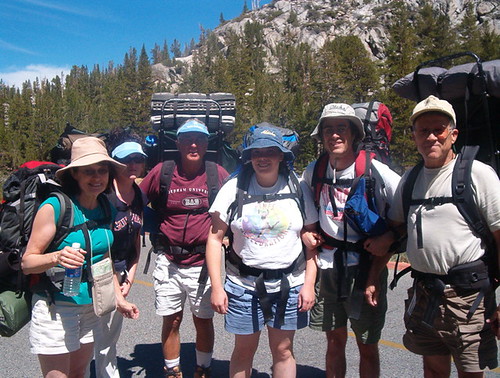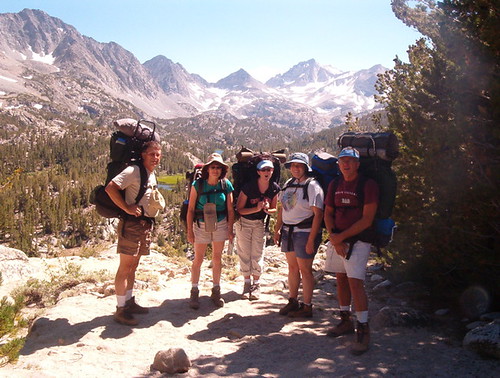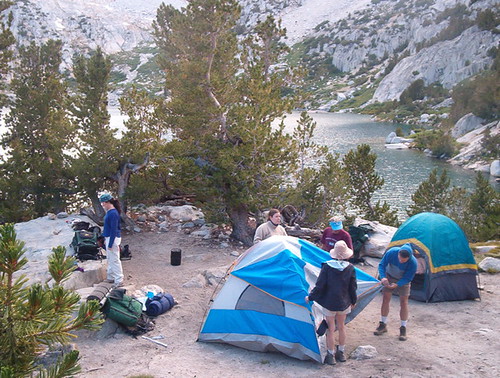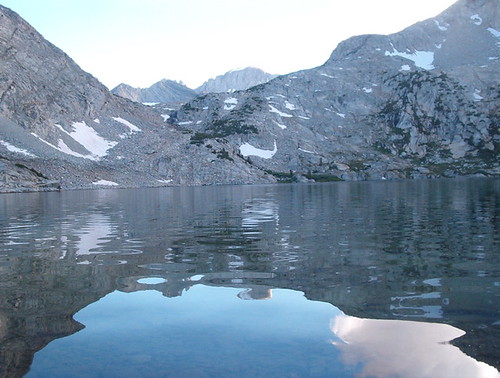I awoke the next morning when the stars were still out, and Jessica and I hit the trail at around 6:30 am, hiking in near darkness. The reason for this was that we planned to run ahead of the rest of the group and meet the ferry at Edison Lake. The ferry, which would cut our walking by about 5 miles, left the landing at 9:30 and we still had six miles to go. It didn't seem like all six of us would make it in time, but we hoped to convince them to wait, or else come back for us later.
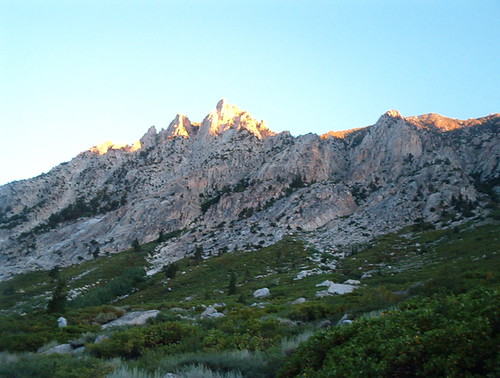
So Jess and I were already a few miles down the trail when the sunrise began touching the tips of the mountains.
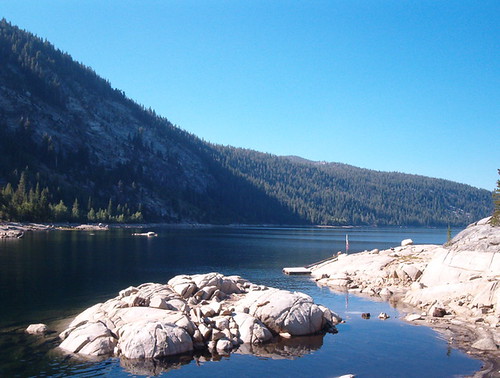
So we wound our way down the river to where it let out into the man-made lake. We made great time, and reached the ferry landing well before the time. The ferry didn't wait for everyone else, but they did promise to return in a few hours to fetch us. So we spent a few hours lounging on the beach, waiting to be rescued...
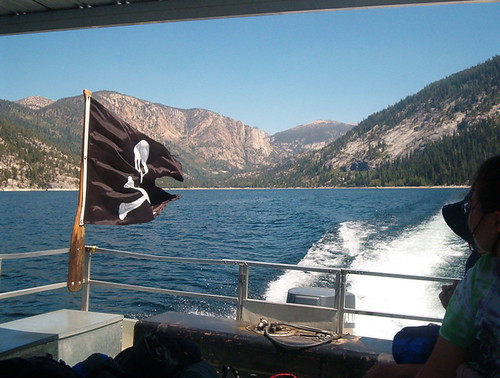
... which we eventually were... by a pirate boat, which took us across the lake to the furthest inreach of civilization: a boat rental, a cafe and some cabins at the end of a windy dirt road. And a great view looking back in the high country from where we had just come.
